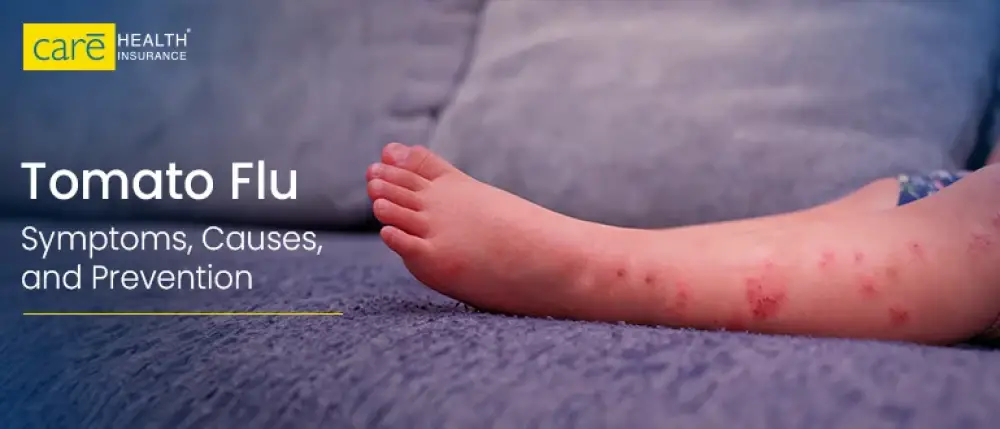The virus, tomato flu, is an alternative form of the hand, foot, and mouth disease. Also referred to as tomato fever, this condition is more prevalent in young children than adults. This condition gets its name due to the formation of red tomato shaped blisters on the body; these are round, full of fluid, and painful. Even though this condition is not life threatening, it is highly contagious. This blog will take a look at the causes and symptoms of tomato flu, and what steps you can take to prevent this condition.
What Causes Tomato Flu?
Initially the exact cause for this disease was vastly unknown, with many sources attributing it to viruses carried by mosquitoes. However, later studies revealed that tomato flu is caused by the Coxsackievirus A-6 and A-16 of the group enterovirus. Further, it has also been noticed that the widespread effect of the chikungunya and dengue viruses has made Indian children more susceptible to this disease due to a weaker immune system.
Tomato Flu Symptoms
Large red rashes, joint pain, and fever are some of the primary symptoms of this disease. Given below are some other symptoms which might occur:
- Large red blisters that look like tomatoes
- Acute dehydration
- Fatigue
- Body pain
- Stomach cramps
- Lethargy
- Diarrhoea
- Swelling in joints
- Irritated skin
- Loss of appetite
- Sneezing and runny nose
- Vomiting
- Discoloration in knees, buttocks, and hands
- Coughing and wheezing
Tomato Flu Treatment
Studies have defined tomato flu as a self-limiting disease, which means there is no specific medicine for its treatment. The treatment techniques are similar to those of dengue or chikungunya. The most common way to treat this condition is rest, isolation, proper hydration, using hot water sponges to soothe rashes. Further, you will also require the support of medication like paracetamol for treatment of fever and body pain symptoms.
How to Prevent Tomato Flu?
“Prevention is better than cure”, this age-old saying is a perfect fit for this disease. Since there is still no prescribed treatment for this condition, the best way to be safe from this condition is to take precautionary measures. Following are some steps you can take to avoid getting this flu:
- Avoid being in close proximity to an infected person
- Educate children about the virus and the effect it can have
- Pass on information about the symptoms so that they can avoid people exhibiting them
- Avoid physical contact with people showing symptoms
- Maintain proper hygiene. Encourage children to avoid sucking their thumbs or picking their nose.
- Use handkerchief to cover mouth while sneezing or coughing
- Discourage children from sharing toys, food, and other items with people displaying symptoms
- Maintain proper hydration by consuming plenty of water, juice, milk, etc
- Use warm water to bathe and wash the skin of children
- Consider including immunity boosters and multi-vitamins in diet
Is Tomato Flu Dangerous?
Tomato flu is not dangerous enough to be termed as a life-threatening disease. In most cases, the person recovers in a few days with proper rest and care. However, the consequences of some of the symptoms can be severe. They can pose a significant risk if the infected person has a weak immune system. If it gets difficult to manage any of the symptoms, you should seek immediate medical attention. The treatment of this condition and related symptoms can have a significant impact on your finances. Hence, you should consider purchasing a comprehensive health insurance plan to secure your future and finances.
Key Takeaways!
While Tomato Flu can be concerning, keep in mind that knowledge and precaution can go a long way. By having a thorough understanding of the causes, symptoms, and preventive measures, you can minimise the impact of this disease. Stay vigilant and prioritise hygiene and health. Additionally, having a robust health insurance plan can provide an added layer of protection and support in managing healthcare expenses. With proper attention and care, you can navigate this situation and protect your health.
>> Also Read: Gastroenteritis: Know the Symptoms, Causes & Treatment
